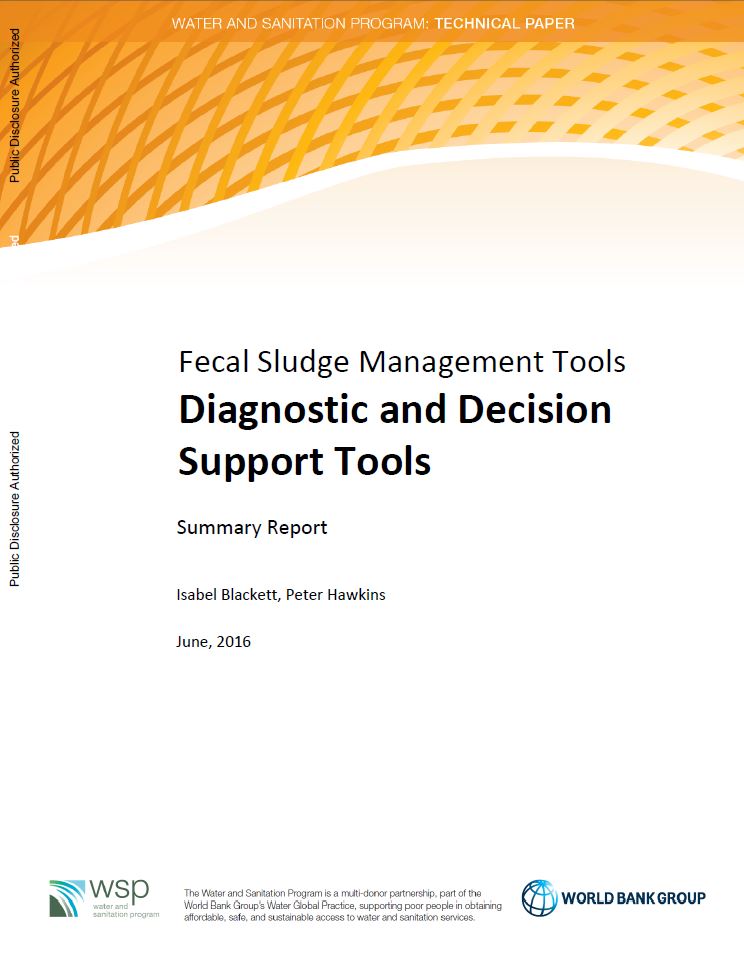Fecal Sludge Management Tools - Diagnostic and Decision Support Tools
 |
guide Jun 2016 ; 84 pages
Aut. Peter Hawkins & Isabel Blackett
Ed. WSP - Washington
Téléchargeable sous format: PdF
Téléchargeable chez l'éditeur
Page de présentation d'un éditeur
Abstract:
Urban sanitation remains a significant challenge for most low- and middle-income countries. The urban population of the group of Least Developed Countries (LDCs) more than tripled between 1990 and 2015. While access to sanitation in LDCs has increased in relative terms, in absolute terms the number of people using unimproved sanitation has increased. Under the post-2015 Sustainable Development Goals (SDGs), there is now a focus on the whole sanitation service chain from containment through to disposal. The challenge for urban sanitation under the SDGs is therefore not only to achieve universal access to toilets, but also that all excreta is safely managed along the whole sanitation service chain. This document provides a summary of the diagnostic tools developed for assessing FSM services and is based on field work carried out in the five cities of Balikpapan in Indonesia, Dhaka in Bangladesh, Hawassa in Ethiopia, Lima in Peru and Santa Cruz in Bolivia. It summarizes the tools themselves, lessons learnt about their use, and general policy recommendations.
Publics-Cibles:
Mot clef: |
Editeur/Diffuseur: |
|
WSP
-
Water and Sanitation Program - Washington - Etats Unis |
En cas de lien brisé, nous le mentionner à communication@pseau.org